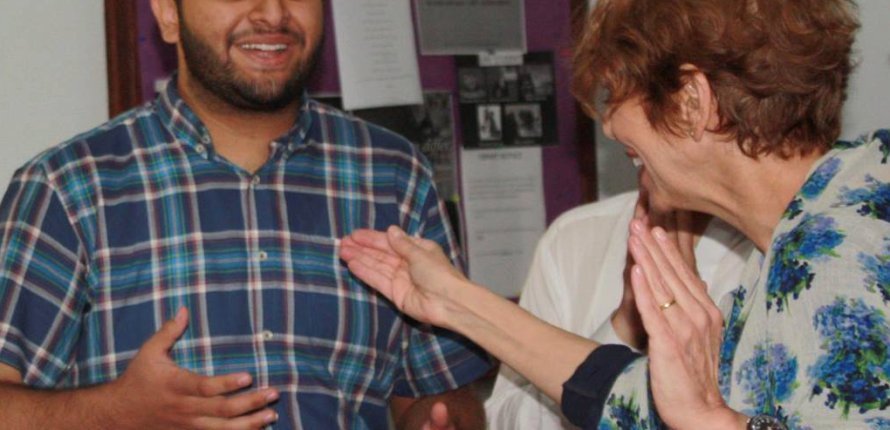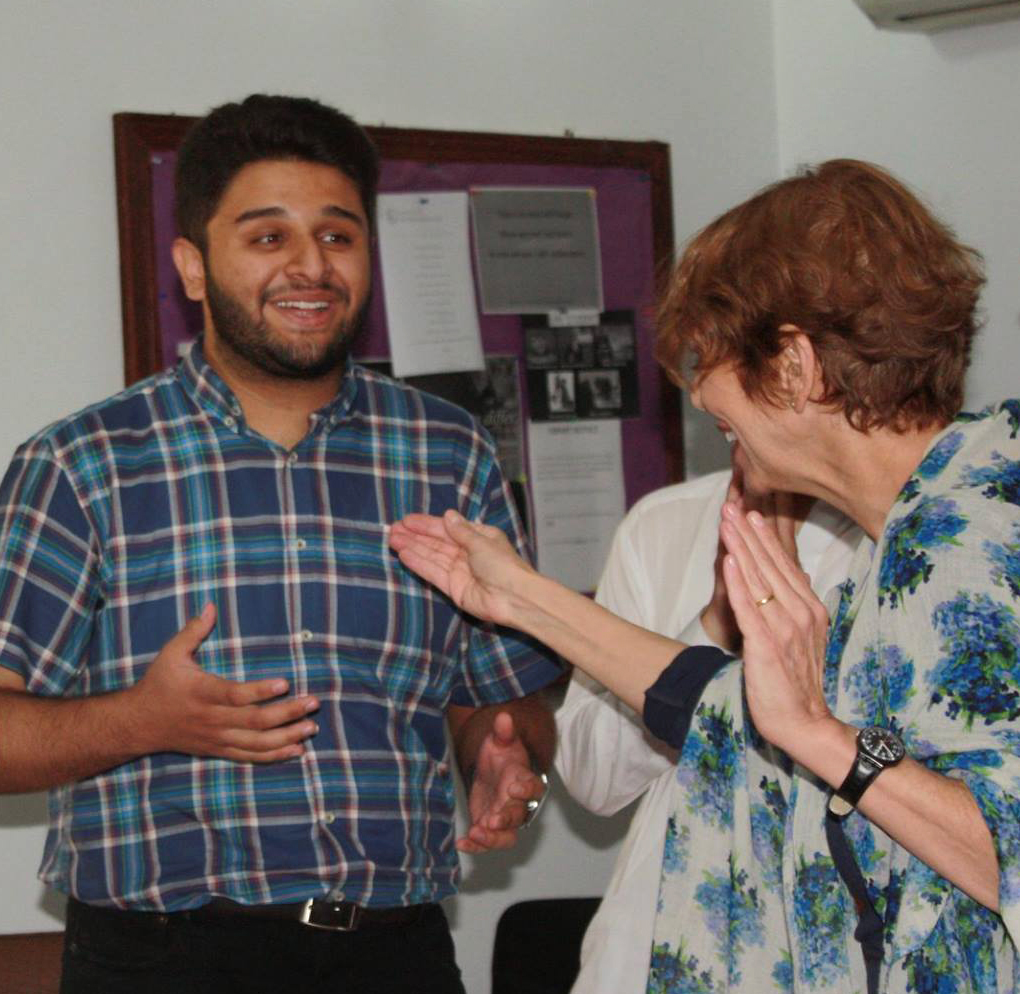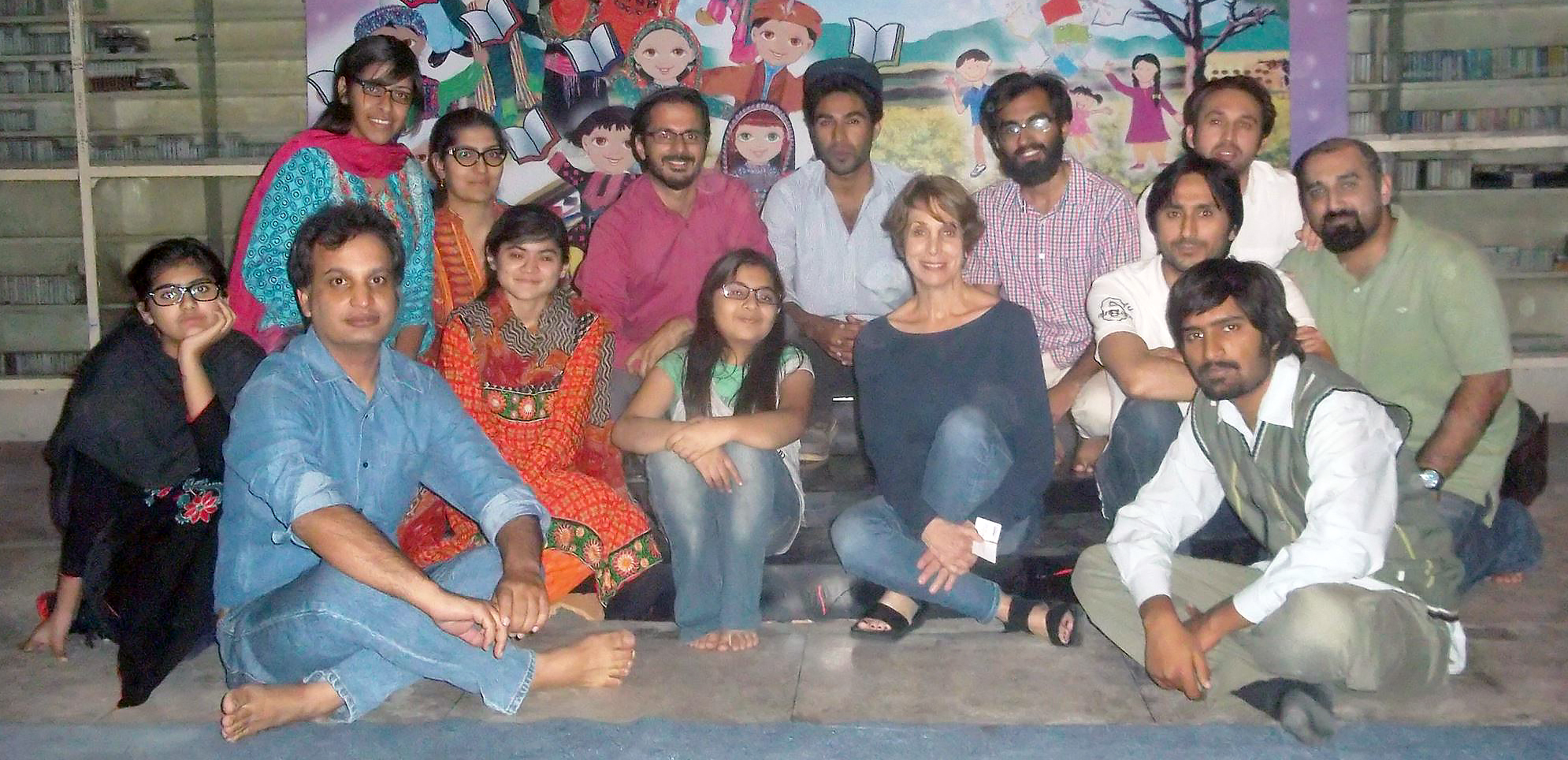Using Theatre for Cultural Exchange in Pakistan

Linda Alper, Independent Scholar
2015 Fulbright Specialist to Pakistan
 Theatre is an ideal medium for cultural exchange. We imagine standing in someone else’s shoes and then communicate that experience to strangers. Regardless of differences, we must collaborate and cooperate in order for a theatrical event to occur.
Theatre is an ideal medium for cultural exchange. We imagine standing in someone else’s shoes and then communicate that experience to strangers. Regardless of differences, we must collaborate and cooperate in order for a theatrical event to occur.
As an actress, playwright, and Fulbright Scholar, I’ve experienced how creative work can bypass cultural barriers. My recent stint as a Fulbright Specialist in Islamabad and Lahore, Pakistan was another example of how the arts reinforce what we all have in common.
I was invited by Theatre Wallay, a ten-year-old, non-professional theatre group in Islamabad. My grant originally was to teach acting and writing skills to the Wallay company members. However, my duties over my 20 day grant were varied, and I ended up working with several different groups.
The first week, I helped with last minute staging for Wallay’s remarkable Partition project co-created by Kathleen Mulligan, another Fulbrighter. This was a classic let’s-get-the job-done-on-a-deadline, since the group was leaving to perform their play in the United States. We had a concrete goal, and even though we barely knew each other, instant trust and communication was essential to finishing the piece.
The next week, I taught an acting/writing workshop for anyone in the community who wished to attend. So no deadline, no prearranged structure or previously devised project. My students were mostly men in their 20s and 30s, plus 4 teenaged girls and a young female lawyer. We knew almost nothing about each other. To begin, we experimented with beginning acting exercises, then we talked. Rather they talked and I listened: about their goals, frustrations, the arts they were exposed to, and the kind of work they wanted to create.
After our discussion, I changed gears and we dove into writing and began a journey that went more deeply than I had assumed possible in a one week workshop. We started with observing a stranger they encountered often. The men chose a head waiter, someone seen on the bus, a street cleaner, a silent security officer. One of our teenagers wrote about an authority figure, two others focused on girls at school. After describing these characters out with very specific details, the students added language. Their characters shared a secret, using his or her specific syntax, vocal tics, mixtures of dialects and languages. Then we explored “The Hero’s Journey,” Joseph Campbell’s research in cross cultural story patterns. The class broke into groups and outlined a familiar plot. (Two groups chose well known western tales, but most charted myths from their own culture.) Finally, they devised a story based on their newly invented/observed character, using “The Hero’s Journey” structure.
 The results were exciting – we had a book of Pakistani short stories, or the seed of an ensemble play: the large inner lives of people who lived under the radar, comic vignettes and a sophisticated tale of hidden violence. There were stories of high school rivalries and a lawyer’s delicate, heartbreaking story of a woman who had to choose between her daughter and her sole opportunity for romantic love. Their writings could evolve into a theatre piece, an interweaving of participant’s own stories and the invented tales of their characters – a piece that could be shared with diverse audiences, to celebrate our differences and reinforce the many things we all have in common.
The results were exciting – we had a book of Pakistani short stories, or the seed of an ensemble play: the large inner lives of people who lived under the radar, comic vignettes and a sophisticated tale of hidden violence. There were stories of high school rivalries and a lawyer’s delicate, heartbreaking story of a woman who had to choose between her daughter and her sole opportunity for romantic love. Their writings could evolve into a theatre piece, an interweaving of participant’s own stories and the invented tales of their characters – a piece that could be shared with diverse audiences, to celebrate our differences and reinforce the many things we all have in common.
During my final week in Pakistan, I visited Lahore and was introduced to two theater groups doing inspiring theatre for social change. Both of these groups, Ajoka Theatre and Interactive Resource Center, do beautiful work about sensitive and important social issues. Their performances provide a platform for discussing important social concerns. I had privilege of teaching a workshop to each group, and it was an honor to learn about their work.
My contact with Theater Wallay and several of my workshop students is ongoing. I am grateful for having had the opportunity to visit an Islamic country and to establish relationships with Pakistani artists and writers. This is the essence of Fulbright – to create one-on-one connections, to dissipate stereotypes and to see the world from someone else’s point of view.
